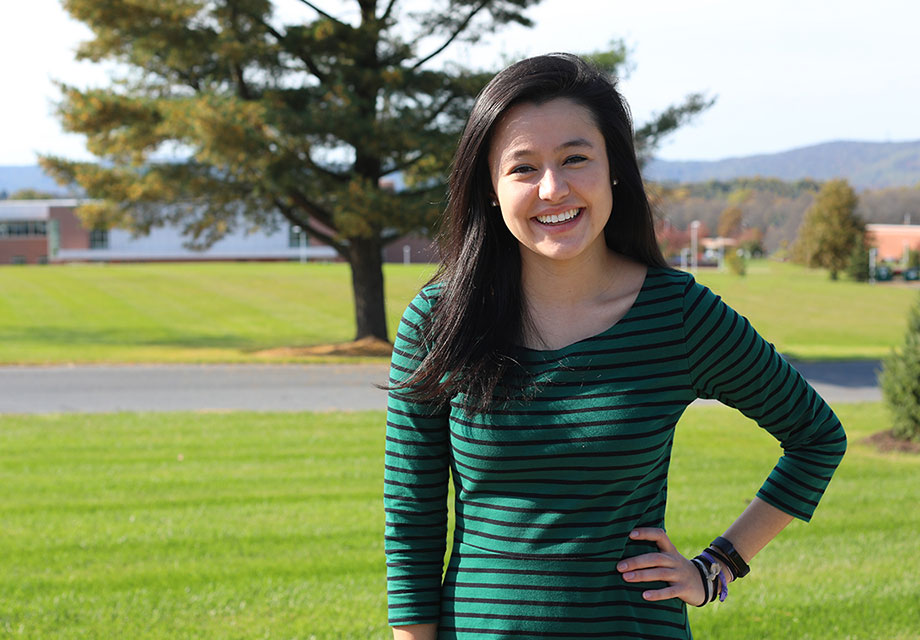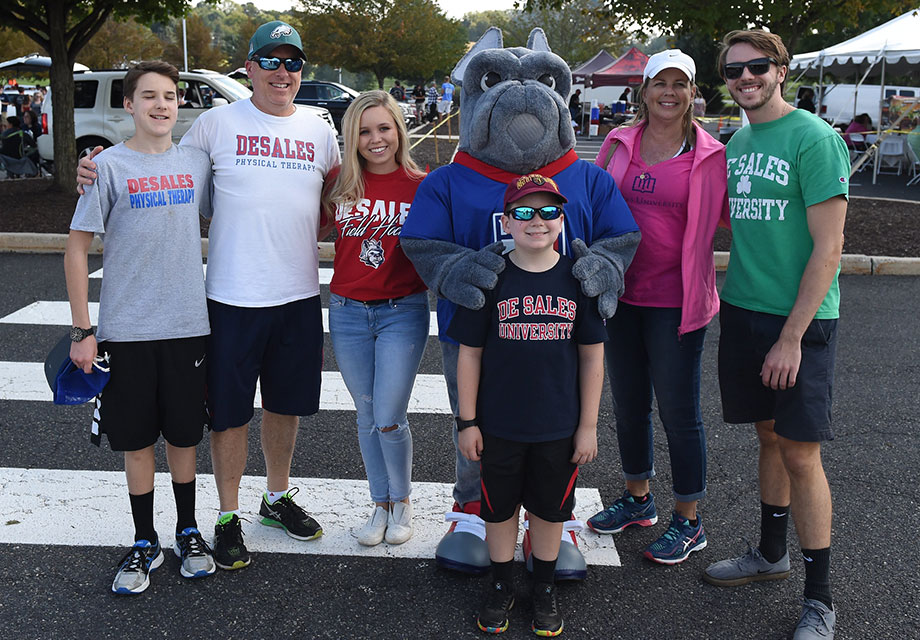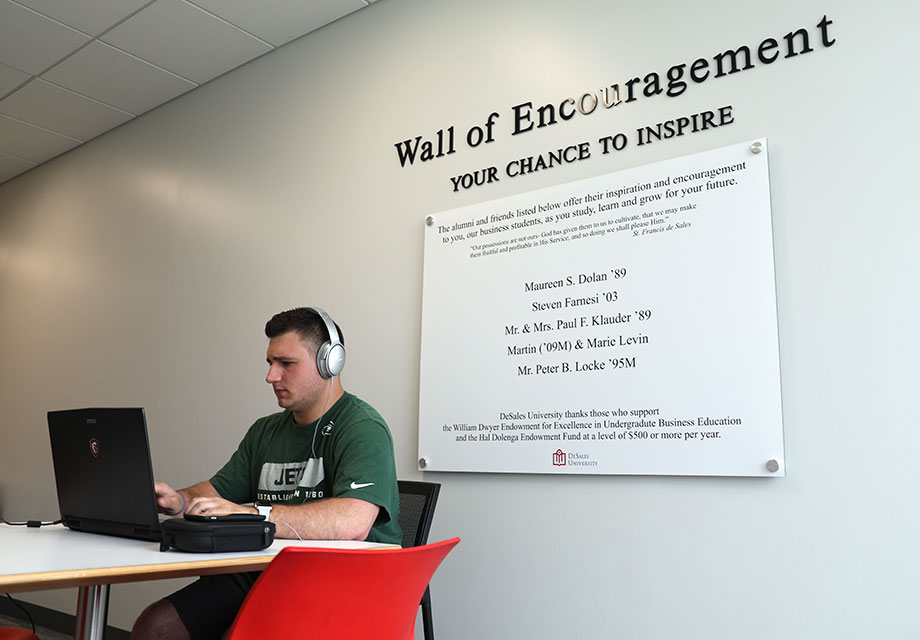DeSales Alumni Community
Welcome to the DeSales Alumni Community, where you can find your classmates, submit class notes and register for upcoming alumni events!
Upcoming Events
Please join us at these upcoming alumni events. Full list of events
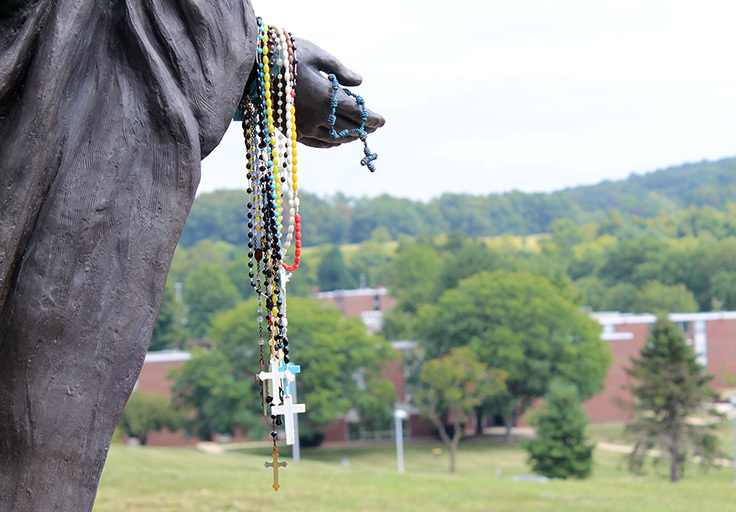
Prayer Request
Nursing Alumnae Make Big Impact in Africa Amid Coronavirus
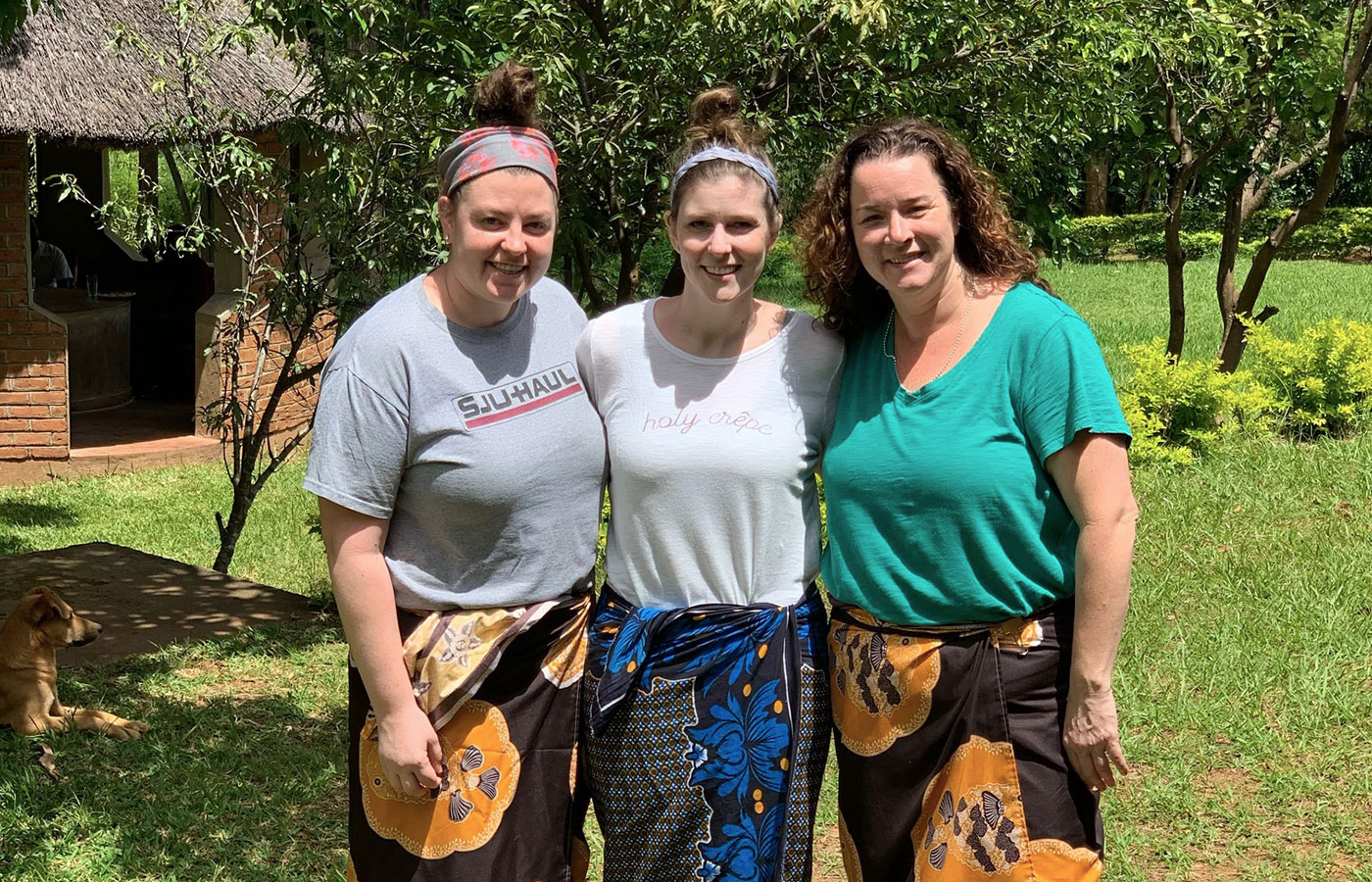
It began as a journey to bring medical care and clean water to the people of the African village of Sakata, Malawi. But nursing alumnae Erin (Ford) Joyce ’95, M’16 (above, right), Laura Bartos ’15 (above, left), and Kathleen (O’Donnell) Grant ’08 (above, center) soon found themselves scrambling to get home amid the Coronavirus pandemic.
The three women have known each other for large portions of their lives. Grant attended St. Catherine of Siena Church and grade school with Joyce. The two aspiring nurses were household names in each other’s families. Even Bartos went on to graduate from St. Catherine and was close with Grant’s sister and the Fords. Now working in the same hospital, the three stumbled upon a unique opportunity for a mission trip that spoke to all of them.
Crowdfunded through Villages in Partnership, a group directly collaborating with the people of Sakata, the service trip was a chance to both enact immediate change as well as provide the villagers with resources that will secure them a healthier, more promising future.
The trip would include volunteering at clinics and medical centers near and around the village, treating patients for diseases, supplying them with hydration salts and antibiotics, and coordinating with the nearest hospital for follow-up treatment—all through the help of translators. While the project ahead of them seemed massively complex, the three decided to undertake the mission trip rather spontaneously.
“Kathleen walked through our unit one morning and asked if I would be interested in doing a mission trip—I did not hesitate at all,” says Bartos, who works alongside Joyce and Grant at St. Luke’s Hospital in Allentown. That day, Grant had given a tour of St. Luke’s to members of the Villages in Partnership board and learned of the opportunity.
After unanimously agreeing, the three were busy the next few days putting a deposit down, buying plane tickets, and fundraising for supplies. As soon as they landed on March 8, their work began.
“Prepping for the medical mission to happen near the end of our trip, we began unpacking supplies, figuring out how to split them among three clinics—some hours away from one another,” Joyce says.
Even initially, the distance between medical centers, coupled with the lacking infrastructure of the region’s health care systems, were presenting challenges. Each day, the three, among other volunteers from across the United States, would rise early, count pills, eat quickly, and hop into trucks to travel the dirt roads to each clinic.
Each time they arrived, people would already be outside the clinics waiting in line. These lines moved with no sense of urgency. While plenty of patients needed attention, they waited their turns patiently, knowing they would be seen as quickly as able.
“My primary job was giving out medication, tending to wounds, and giving baths. It was honestly some of the hardest work I have ever done.”
The volunteers could see more than 700 patients a day, leaving little room for respite. These exhausting days were bookended by reflection, dinner, and preparation for the next long day. Part of why so many patients flood these clinics is due to Malawi’s inability to see patients with frequency. Each villager can be seen by a medical caretaker typically only twice a year.
Additionally, a traveling physician makes himself available to their remote village once a week for follow ups. The only hospital is an hour’s drive away, providing a roadblock to many of the villagers who have no cars or even shoes to make the journey with their families.
Given these limited resources, many of the patients the alumnae worked with had not seen any recent care whatsoever. Many clinicians wanted to use specific medication, knowing the mission group had brought them. This led to treating some benign problems with antibiotics.
“Their access to everyday medication is not there. We need the antibiotics for the little kids with lung conditions. The standard is to treat what you can without antibiotics, saving them for those who really need them.”
After only three days, the group was depleted of their antibiotic supplies. Another large problem faced by mission groups like this is communication. Translators help in undeniable ways, but problems persist when patients cannot come back to follow up with volunteers on their conditions.
The members of the group all expressed their sympathies with the lacking medical care in both the clinics and hospitals, especially when compared to their counterparts in the United States. Many times when patients are seen, they are unable to follow up on their treatment. This makes it hard for both clinicians to know if their treatment was successful and for the people of Malawi who may misunderstand instructions on how to properly use their medication—medication that may only lessen symptoms in the first place.
But amid all the work the three nurses were doing in Africa, the Coronavirus was becoming a problem back home in the United States. While they had planned to spend more time tending to patients and eventually exploring other regions of Africa on a safari, they were awoken early on March 12 and told the news that airlines were beginning to restrict international travel. Concerned they may be stuck for over a month, they swiftly packed their things and took the earliest flight out.
“After what we saw and did, it was hard to feel like we shouldn’t stay longer for them,” says Joyce, who admitted it was hard to imagine how it could be worse at home.
The nurses left feeling like there was so much work they wish they could have continued to do for the villagers of Malawi. Still, they vow to continue to help others less fortunate in the future. It is their collective consensus that educating the villagers, so that they can begin to medically care for themselves, is of the highest importance.
“I will absolutely continue volunteering and going on medical missions,” says Grant, who has been on previous service trips to Costa Rica, India, and Africa. “It is my passion, my way to give back, and a way for me to learn about the cultures of the communities I help. Each time I return from a mission, I feel a little lighter.”
To provide more in-depth details of their trip, Joyce recorded her daily events in her blog, highlighting the challenges and uplifting moments of the experience.





